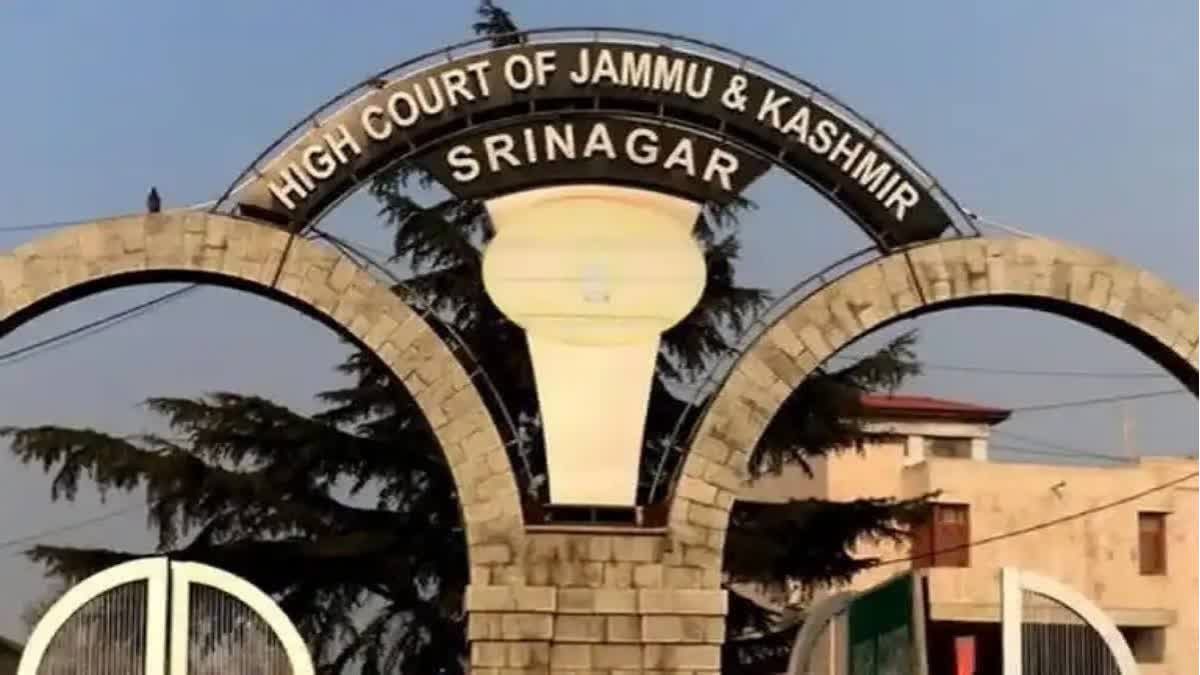Srinagar: In a landmark judgement, the High Court of J&K and Ladakh has ruled that a “Muslim woman cannot be denied a share in her father's property,” citing the Holy Quran, which it said prioritises women's inheritance rights over males. The decision comes after a 43-year-long legal battle by Mukhti, who had sought her share of her father's property.
The bench of Justice Vinod Chatterji Koul, on Wednesday, said that Mukhti was entitled to inherit her share of the property as per Muslim Personal Law, and their rulings were legally binding on all subordinate and revenue courts. Mukhti passed away while fighting a legal battle with her brother for the share. She is now survived by her three daughters and five sons.
The court criticised the actions of revenue officers for being ignorant about the Muslim Personal Law, and they had issued orders that effectively excluded Mukhti from being recognised as the daughter of the late Muhammad Ganie of Srinagar. The court described the development as “pathetic,” pointing out that Mukhti’s children were still striving to secure their mother’s rights, even with a division bench ruling in her favour.
“The parties involved in this dispute are Muslims who meticulously follow Islamic practices and rituals, including daily prayers, Eid celebrations, Hajj, and zakat…but when it comes to granting inheritance rights to daughters or sisters, some individuals invoke customs contrary to Islamic principles,” the court observed and termed the practice "unacceptable.”.
Citing Verse 11 of Surah An-Nisa, the court reiterated the Quranic injunctions on inheritance, which allocate specific shares to children, spouses, and other family members. While sons receive double the share of daughters, the court explained this provision is rooted in the son's financial responsibility to maintain his family, including his wife, children, and parents.
“It is a Quranic duty to assign inheritance shares to daughters. Even a plain reading of Surah An-Nisa confirms that inheritance rights prioritise females before males,” the court asserted, adding that Mukhti's children could not be deprived of their rightful inheritance under any excuse.
The case dates back to 1981 when Mukhti approached the high court seeking her inheritance under Muslim Personal Law. Despite being entitled to one-third of the property, the woman's claim was initially dismissed for lack of possession. Following her passing, her children appealed against the decision, and a division bench ruled in their favour.
However, the situation became complicated when Mukhti's brother contested the division bench's ruling. “Due to flawed interpretations of Muslim Personal Law, the Settlement Officer and Settlement Commissioner reversed the division bench's ruling.” These actions, the court remarked, effectively disregarded the binding precedent set by the division bench.
The court condemned the actions of the Settlement Officer and Settlement Commissioner, stating they had treated the division bench judgement as a “mere plain paper.” The court affirmed that Mukhti was entitled to inherit her share of the property as per Muslim Personal Law, and their rulings were legally binding on all subordinate and revenue courts.
The court quashed the orders passed by the Settlement Commissioner on December 8, 2010, and the Settlement Officer on July 28, 2009, which had denied Mukhti her rights. It directed the Revenue Department to implement the division bench’s 1996 judgement within three months, ensuring Mukhti’s children received their rightful share of 69 kanals and two marlas of land located on the outskirts of Srinagar.
The court also addressed potential third-party interests in the land. It said that if Mukhti's brother had sold or transferred any part of the land, he would have to offer land somewhere of equivalent value or make up the difference using the property's current market value.



